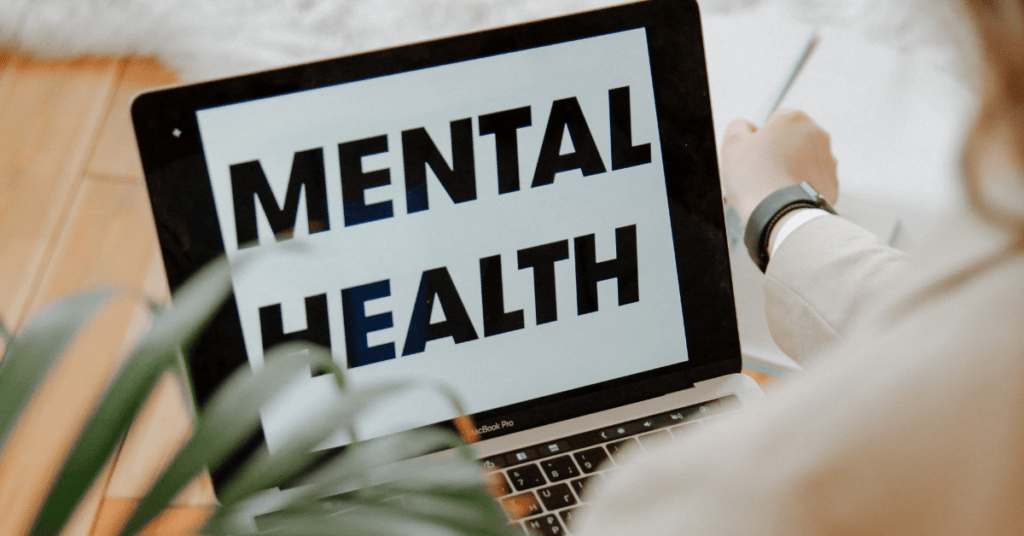Contents
What is Mental Health?
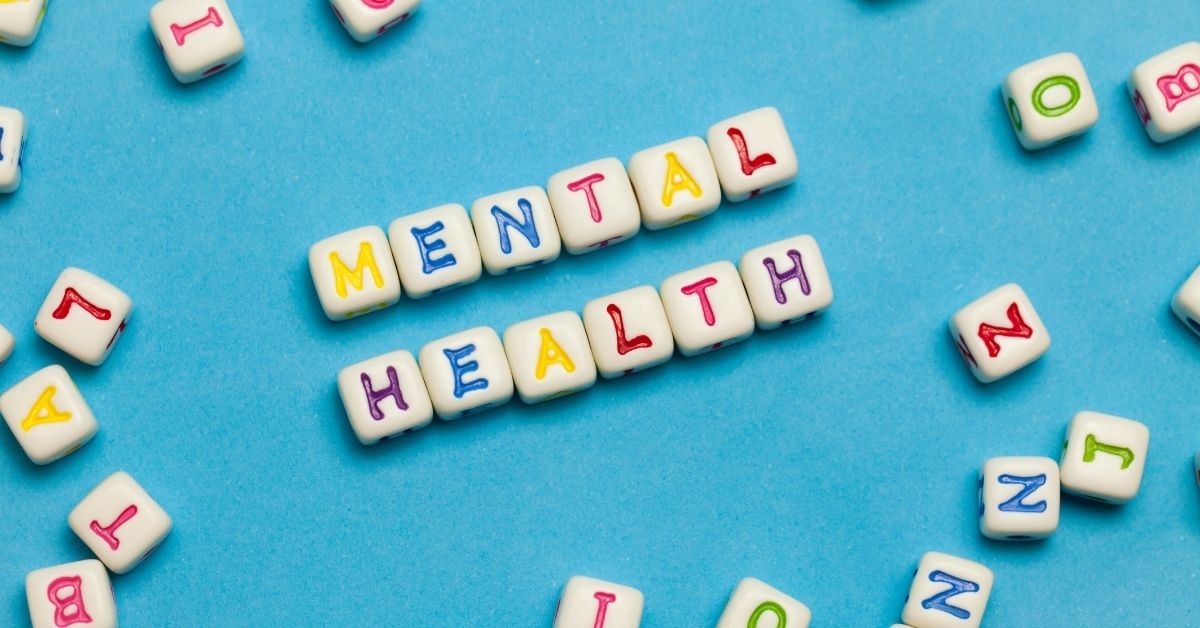
The term mental health is often used to refer to a person’s emotional and psychological state. Mental well-being can be defined as a state of physical, social, and emotional well-being. Here in, an individual realizes his or her potentials, copes with the normal stresses of life, works productively at work, has satisfying interpersonal relationships, and is able to make a contribution to society. This blog post will discuss both mental health and mental well-being in depth.
Mental health is your state of mental wellness or illness. It can fluctuate depending on life events, happiness levels, and the way you think about yourself. Everyone experiences feelings of stress, sadness, and anger. But it’s how we deal with these emotions that make us all different. For example, someone who has good coping skills might be able to work through their feelings after a breakup. They may experience sadness, but it will soon pass. They’ll feel better again. Other people might need help with these types of common life experiences because they struggle with anxiety or depression. It can make them not want to get out of bed in the morning for days on end. They may also feel like they’re not good enough for anyone.
Why Is Mental Health Important?
A huge part of the population suffers from mental health issues. These problems can lie dormant for a long time. There is often no outward sign that they exist until something happens to bring them out into the open.
It may be easy to overlook mental health conditions as being anything more than just another part of human nature. After all, we’ve been dealing with our inner demons since the dawn of time. But you need to understand and realize that mental health problems are actually unusually common. They also have a significant impact on our lives.
In fact, according to the most recent research from Beyond Blue, one in five of us is currently suffering from anxiety or depression alone. That’s hugely worrying when you consider that these statistics include people who may not be aware that they are struggling.
Types of Mental Health Disorders
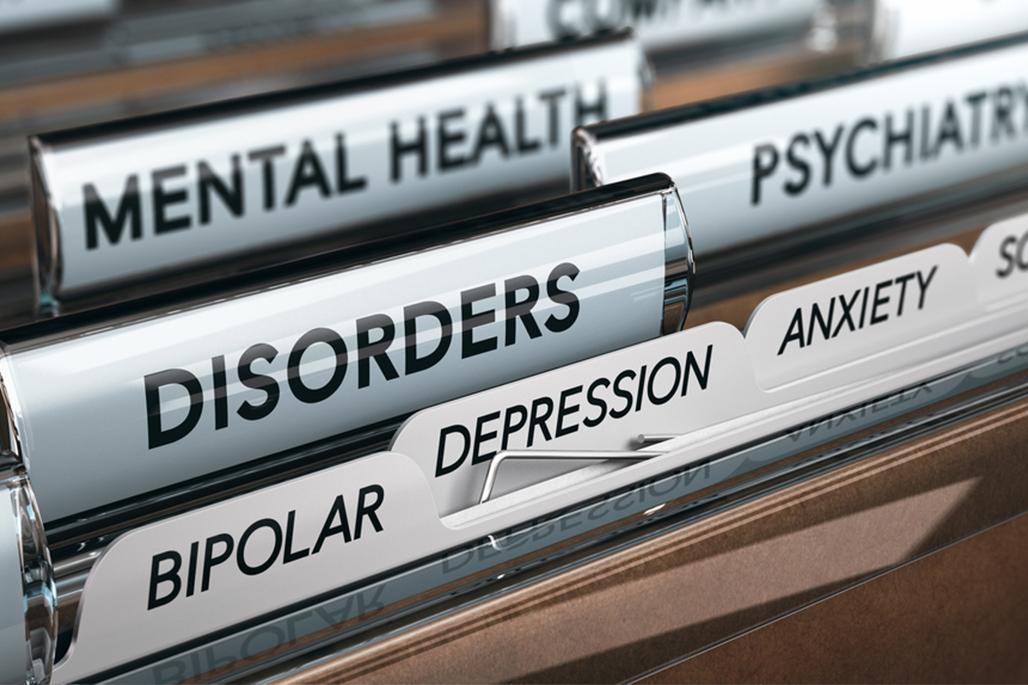
mental health disorders are of many types. the major ones are listed below:
Anxiety Disorders
Anxiety Disorders are one of the most common mental disorders that is caused by a combination of genetics and environmental factors. The most common forms are panic disorder, social phobia, specific phobias, obsessive-compulsive disorder (OCD), posttraumatic stress disorder (PTSD), and acute stress reaction.
people with anxiety disorders usually have intense fear or worry that causes such as nausea, diarrhea, or complete panic attacks.
Mood Disorders
There are two types of mood disorders- bipolar disorder and depressive disorder. Both have the same symptoms but just different levels. a person with bipolar has alternating episodes of depression and mania whereas a person with a depressive disorder can suffer an episode at any time in their life if they undergo stress or trauma that triggers one.
Eating Disorders
These are the mental disorders in regards to your eating habits or body perception. anorexia is a disorder where people try to lose as much weight as possible, bulimia is the habit of eating too much and then purging through vomiting.
Personality Disorders
These are the disorders that affect your personality, mental health, and social life.
OCD
Obsessive-compulsive disorder is where a person has to do certain tasks repetitively which may cause them great stress or anxiety because they have this feeling of doubt around it so, therefore, feel they cannot stop themselves from doing these things.
Schizophrenia
These are the people who are incapable of distinguishing between what is real and unreal.
Depression
Depression shows itself through feelings of sadness, despair, or hopelessness that last for a long time without reason or cause. People with this disorder often have suicidal thoughts which can be very dangerous.
Post-traumatic Disorders
This disorder is where a person has experienced something very traumatic in their life which causes them to have feelings of fear, helplessness, or horror.
Symptoms of Mental Health Illness
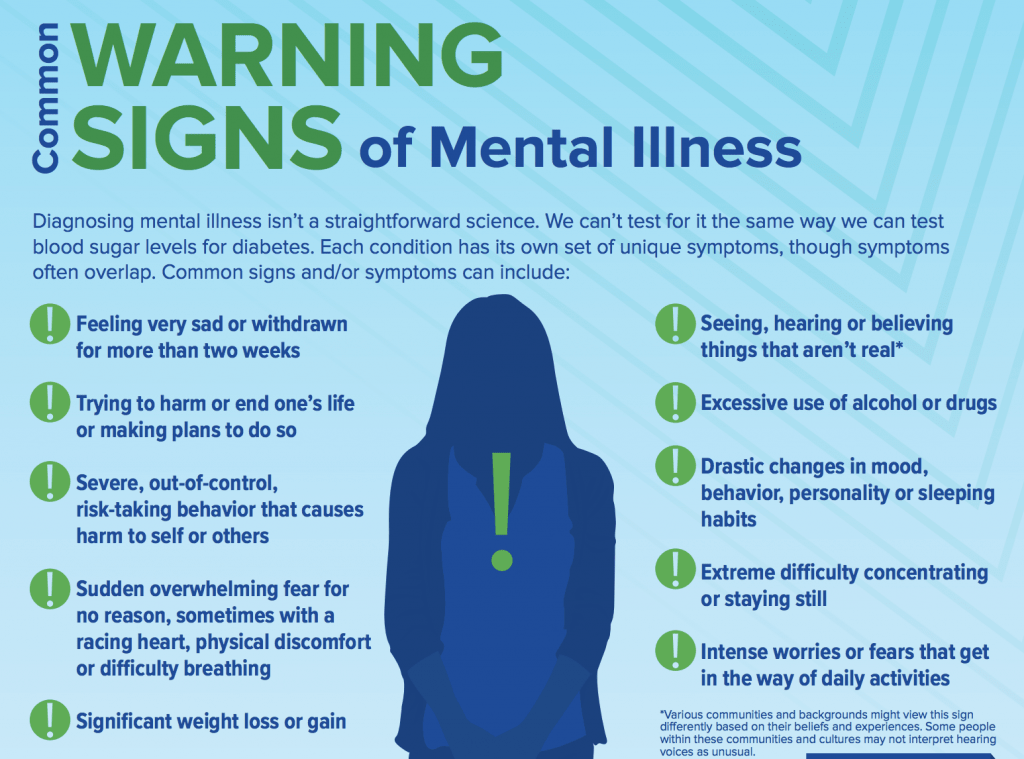
There are many symptoms of mental health issues that people may experience. The symptoms can be anything from feeling sad for extended periods of time to experiencing hallucinations. Here is the list of symptoms that your friend or family member may want to share with their doctor if they experience them again in the future!
Sleeplessness and Sleeping Too Much
One symptom for both mental health issues and medical conditions is sleeping more than usual or not being able to sleep at all. If someone that you care about isn’t getting enough sleep, it might be a good idea to mention this symptom during their doctor’s appointment so they can be tested for mental health issues.
Losing or Gaining Weight Rapidly
Rapidly losing (or gaining) an unhealthy amount of weight is another symptom that people forget to mention during their doctor’s appointment, but it could end up saving someone’s life! Make sure you tell your friend, family member, or loved one to mention this symptom during their doctor’s appointment.
Losing too much weight can be a symptom of depression and other mental health issues whereas gaining too much weight is a symptom of anxiety disorders and some forms of schizophrenia.
Inability to Speak Correctly
Losing the ability to find proper words during a conversation is often overlooked as a symptom of mental health issues, but it’s actually one of the first symptoms that people notice. If someone tells you they can’t seem to think clearly or have difficulty finding their voice while speaking with you, then take them seriously and mention this symptom when performing your own research.
Excessive Worrying Symptoms
If they are frequently talking about or preoccupying themselves with something bad that might happen, this is a definite sign to pay attention to. This symptom can also be related to symptoms such as symptoms of depression symptoms, but it’s still important to keep an eye on them because if their worrying becomes excessive, then it can be symptoms of anxiety symptoms.
Tense muscles
Mental health issues leave with other symptoms including tense muscles. This can be a sign that they are constantly under stress and is symptoms of depression symptoms. Symptoms like this go hand-in-hand with other symptoms such as schizophrenia symptoms, so it’s best to keep an eye on them if you notice these signs in your
Excessive Drug and/or Alcohol Use
After being stress or depressed for so long that they start to take drugs or drink. These can be symptoms of anxiety symptoms, bipolar disorder symptoms, depression symptoms, and even schizophrenia symptoms. It’s important that you pay attention if your loved one seems
Withdrawal from Friends and Family
They don’t feel like talking or making contact with others. you even don’t feel like talking to your own people. These symptoms of bipolar disorder symptoms, depression symptoms, schizophrenia symptoms are very important for you to know.
Violent Behavior Toward Others or Self
Feels like they have a lot of anger inside them and don’t want it anymore so they start being violent with their own family members or even strangers who happen to cross their.
Irritability
Most people with mental health issues also face irritability. Symptoms that your loved one is symptoms bipolar disorder symptoms, schizophrenia symptoms, or even depression symptoms will show through their irritability. If you see unexplained bouts of hostility coming from them it may be an indication of mental health issues like symptoms of bipolar disorder symptoms, schizophrenia symptoms, and even depression symptoms.
Feeling Agitated
Typically mental health issues symptoms will cause people to feel agitated. This is because they are unable to focus on their own thoughts due to mental health issues like symptoms bipolar disorder symptoms, schizophrenia symptoms, or even depression symptoms.
Loss of Interest in Things They Used To Enjoy
When someone is depressed symptoms, they tend to lose interest in things that used to bring them joy. This is often because mental health issues symptoms neurosis can cause people to feel disconnected from others and also the outside world symptoms.
Causes of Mental Health Disorders
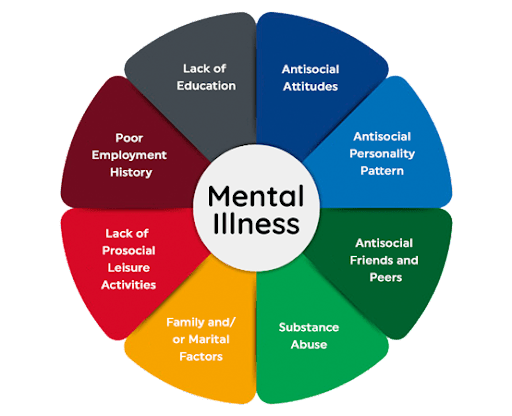
There can be several factors affecting your mental health:
Your Genes or Family
If someone in your family is facing mental health issues, there is a chance that the coming generation is also in danger. Also, if one of your parents is always sad and stressed out for no apparent reason, it’s most likely that this causes the same feelings in their child.
Your Life Experiences
If you’ve faced trauma, like physical or emotional abuse (for example, bullying at work), it causes mental health issues. Life changes can also lead to depression and anxiety.
The Environment Around You
Your surroundings affect the way how people see themselves and what they think is normal. You might think that not having the perfect body is a reason to be stressed out, but in reality, you are surrounded by people with similar thoughts.
Your Mental Health
If your brain is wired for anxiety or depression, it causes these issues! There’s also another thing called “substance use disorder”.
Childhood Traumas or Abuse
If you are constantly scared of getting hurt, the fear can translate into anxiety later on.
Relationship Problems
Many mental disorders have their causes in unhealthy relationships with other people. If you feel alone, unloved, and rejected by your loved ones, you might have a mental disorder
Drugs and Alcohol
While drugs and alcohol can cause chemical imbalances in the brains that lead to mental disorders, they are also used as coping mechanisms.
Treatment for mental health
The treatment depends on the type of mental disorder the person is suffering through. It can include medication such as antidepressants, counseling, and therapy. Treatment for mental health is different from treating a physical illness because the treatment must improve the emotional well-being, thinking patterns, and behaviors of an individual.
It is not one size fits all either – some people respond to certain treatments better than others so finding out what works best with each individual is key to getting better. Treatment for mental health can be life-long but it doesn’t mean that the individual will have to suffer through their illness forever. Types of mental health treatment:
Psychiatric Hospitalization
Treatment for mental health can begin with psychiatric hospitalization. Treatment for mental health in a psychiatric hospital allows the individual to receive 24-hour care from doctors and nurses as well as have access to medications that may help improve thoughts, moods, or behaviors.
Inpatient or Residential Mental Health Treatment
Treatment for mental health can also involve inpatient or residential treatment. Treatment for mental health at an institution may help the individual stabilize their emotions, thoughts, and behaviors while allowing them to feel safe within a controlled environment.
Outpatient Treatment
Treatment for mental health doesn’t always need to be intensive; it’s about finding what works best with each person that is seeking treatment for mental health. It may involve outpatient care, which typically includes therapy sessions in a few day increments to help the individual learn coping skills and how to manage their condition on an ongoing basis. Treatment types are not one-size-fits-all; The treatment is about finding what works best with each person that is seeking treatment.
Dual Diagnosis Treatment
Treatment for mental health may include dual diagnosis care where an individual can receive help for both their psychiatric condition and addiction issues at the same time; this type of treatment help individuals who have both issues, allowing them to cope and live a more stable life.
Psychotherapy
Treatment for mental health is not limited to medication and therapy options. Treatment may also include psychotherapy, which can be done in several different types of therapies including cognitive-behavioral therapy (CBT), dialectical behavior therapy (DBT), or general talk therapy sessions with a therapist.
Tips to Improve

Talk
The first step to take is to be able to talk about your thoughts and feelings. You can’t fix a problem if you don’t know it exists. So talking with someone, whether that be a friend or family member, could help immensely in working through mental health issues
Stay active
Although it may seem tough to do, keeping active is important in improving mental health. Even taking the time to exercise or go for a walk can help you clear your mind. It will improve your outlook on life.
Help others
Doing good deeds will not only benefit those around you but also yourself. Taking the time out of your day to perform kind acts, Whether big or small, it will make you feel better about yourself and help improve your mental health.
Set goals
Having something to look forward to is important in improving your health. Setting new goals for the future, whether that be personal or professional, can really boost moods and make things seem not so bad after all.
Practice mindfulness
Practicing mindfulness isn’t as difficult as it may seem. Taking a few minutes out of your day to stop and take in the world around you will make everything feel less stressful.
Write down what’s on your mind
Sometimes keeping a journal can be helpful when dealing with mental health issues. Writing down all that is going on inside your head can help clear things up. Also, this makes it easier for a person to deal with the circumstances.
Do something you love
Whether that be painting, playing the piano, or listening to music, doing something you enjoy can really help improve mood and mental health. It’s important not to feel like you have to do everything alone and reach for support when needed.
Spend time outside
Natural light is great for improving mental health. Taking some time each day to get outside and soak up the sun can make a huge difference when it comes to making you feel better.
Get enough sleep
Getting enough rest is very important for your health. In fact, people who don’t get adequate sleep are more likely to suffer from anxiety or depression. Try sticking to a regular bedtime routine, to make sure you are getting enough sleep.
Meditate
Meditation can be a great tool for improving mental health. Even just five minutes of meditating each day can help reduce anxiety and improve mood. There is no right or wrong way to do it; some people prefer guided meditation while others like silence.
A Word From Mantra Care
Your mental health — your psychological, emotional, and social well-being — has an impact on every aspect of your life. Positive mental health essentially allows you to effectively deal with life’s everyday challenges.
If you are looking for affordable Online Counseling MantraCare can help: Book a trial therapy session
